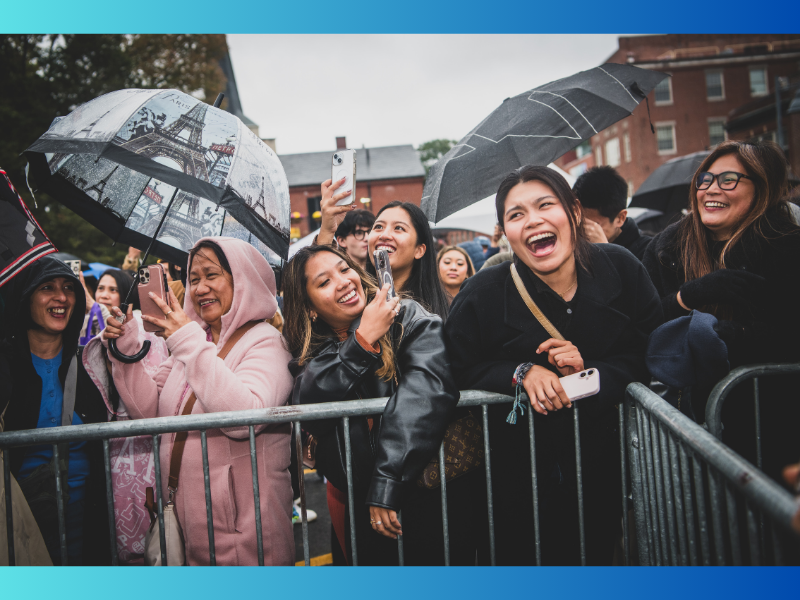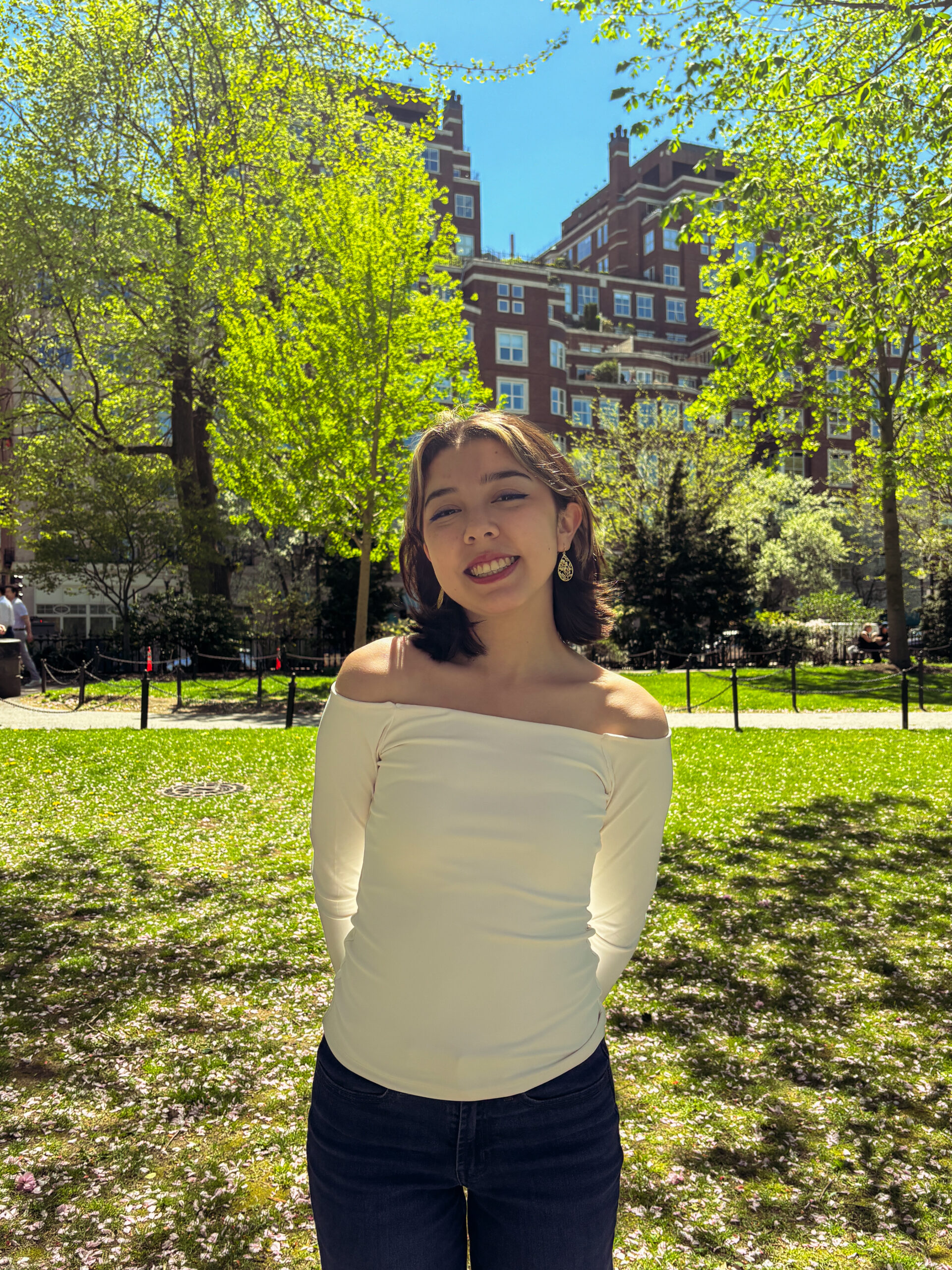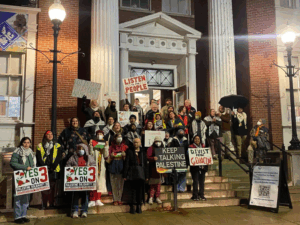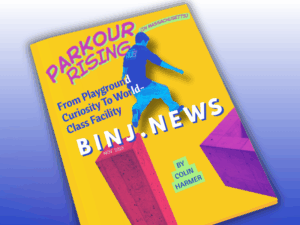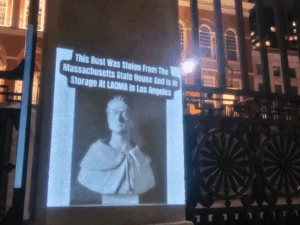BOSTON – Moving to a new city for college comes with many challenges, but for Trish Fontanilla, one of the biggest ones she discovered was trying to fill a hole in her Filipino identity without an easily accessible community.
Fontanilla grew up in New Jersey, but when she moved to Boston over a decade ago, she found it difficult to connect with other Filipino individuals who didn’t rely on speaking in Tagalog, a language she isn’t fluent in, to connect.
“I think it’s really great for people who are coming from the Philippines and looking for community, for them to be able to speak the language that they are comfortable in, but I can’t interact in those groups,” Fontanilla said.
However, Fontanilla overcame this obstacle through an aspect of Filipino culture that doesn’t need language to be understood: food.
After meeting three other Filipina women at a networking event, they decided to deepen their network and instant connection through their love of Filipino cuisine. The four women began organizing small potlucks to cook Filipino dishes that weren’t available through restaurants at the time.
Over the years, these small gatherings grew, leading Fontanilla to meet Leila Amerling and Bianca Garcia. Soon after, the three of them co-founded BOSFilipinos in 2017, just one of the cultural organizations in the Boston area that facilitates events to elevate Filipino culture.
“It had started with food, but we realized the importance of getting people together, but also writing, sharing, and uplifting stories of everyday Filipinos in the city,” Fontanilla said.
Other Filipino cultural organizations said they also recognized the value of food in fostering connection and education. On Oct. 12, the Harvard Square Philippine American Alliance hosted their fourth annual Filipino American Festival in Harvard Square to celebrate Filipino American History Month. Despite damp and dreary weather, about a hundred people showed up throughout the day. Some people arrived from across the northeast and even as far as Ohio and Maine to attend, according to Catherine Uy, founder and president of the organization.
Sheena Keating came with her family from New Hampshire to attend the festival, and was eager to be in a space where so many Filipino people could gather and celebrate their culture.
“Where I’m from in New Hampshire, I’m one of two Filipino kids in maybe the entire town. It’s nice to see that there is this community here, and I like that this has brought us all together,” Keating said. “I feel like this is the most Filipino I’ve felt in years.”
About a dozen food vendors lined the festival, with dancers and singers performing traditional Filipino dances and iconic songs on the main stage. Catherine Uy thinks these interactive elements attracted people who are Filipino themselves, as well as those outside the community.
“I think that the best way to teach people is actually through art [and] through food,” Catherine Uy said. “We can’t sit in the classroom and teach them, but by sharing together, doing fun things, it’s easier for them to remember those memories.”
Filipinos are the third largest Asian origin population in the U.S., according to the Pew Research Center, with 38% of the Filipino population in the U.S. living in California. For Katrina Uy, a volunteer with HSPAA, her biggest culture shock when moving from California to Boston two years ago was from the lack of Filipino culture in the area. After discovering HSPAA last fall, however, Katrina Uy said she found that community that was so familiar to her out west, once again.
“I really wanted to spend some time with people who kind of understood my perspective better as a transplant, as a child of immigrants in a place that’s not very diverse.”
Katrina Uy recognized that there are still steps to be taken to raise awareness of the Filipino community, namely by connecting with other minority groups. These cross-cultural connections, she found, can be fostered through food. When making Filipino dishes for her friends of different cultural backgrounds, Katrina Uy included flavors and ingredients that are familiar to them, such as adding Indian mango puree to Filipino halo-halo, a shaved ice dessert.
“Once they get a taste of [something familiar], they’re a little bit more open to trying some of these things that are not as common,” she said. “At the end of the day, I just want to share my culture with someone else, so I think being inclusive and thoughtful of other people’s preferences or diets really helps you know get that conversation going.”
While adapting Filipino dishes to other palettes does make the acceptance of them easier, Katrina Uy acknowledged the dangers of assimilating and diluting the meaning behind the dishes. Katrina tries to counteract this by explaining the cultural and historical contexts of a Filipino dish she makes, especially if she made modifications to it, she said.
“Inclusivity is kind of the word of the day for me,” Katrina said. “The more people we can reach the better because the alternative is that people won’t know about what Filipino culture is, and it can disappear very easily without that awareness.”
Since the Filipino community in Boston is small compared to other metropolitan areas, Fontanilla said the dialogue about it should be facilitated by Filipino individuals with people on both the inside and outside of the community. This would ensure their stories are still being told, and Filipino individuals who may be new to Boston, as she once was, don’t feel alone.
“If no one is going to cast us and tell our stories, then we need to be able to tell our stories.” Fontanilla said. “There’s a beauty in finding out you’re not special.”
This article was produced for HorizonMass, the independent, student-driven, news outlet of the Boston Institute for Nonprofit Journalism and is syndicated by BINJ’s MassWire news service.

